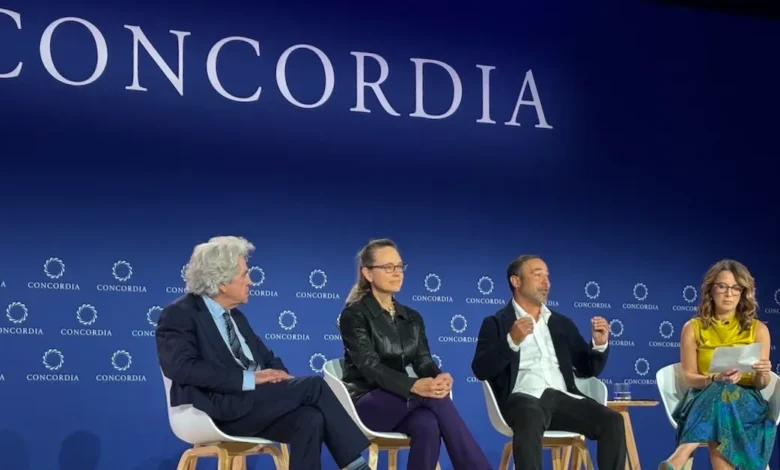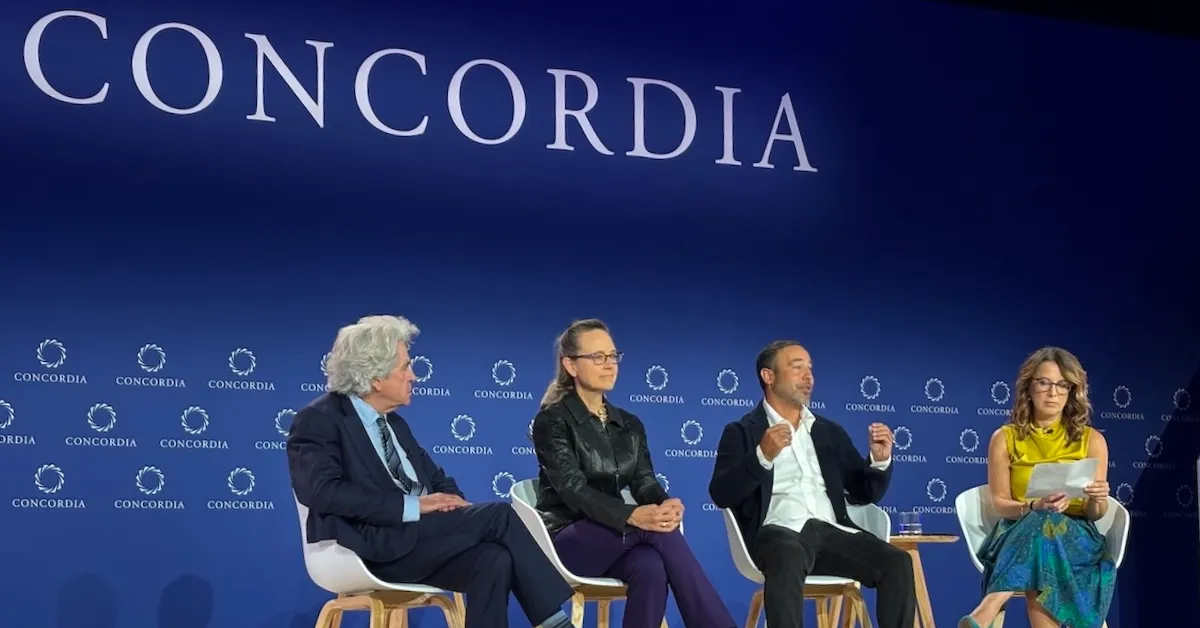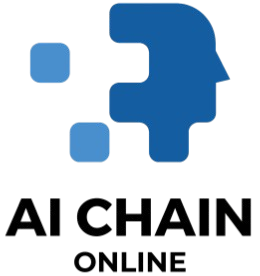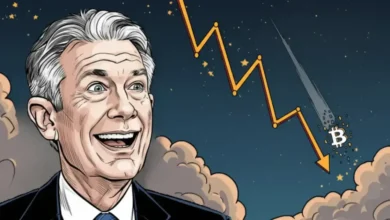Bitcoin Circular Economies Highlighted at United Nations General Assembly Week Event

Bitcoin Magazine

Bitcoin Circular Economies Highlighted at United Nations General Assembly Week Event
Yesterday, at the Concordia Summit, an annual event held during the UN General Assembly week, Paystand CEO and co-founder Jeremy Almond made the case for why Bitcoin is important for those living outside the borders of highly developed countries, as well as how it helps people meet the UN’s sustainable development goals (SDGs).
At the event, which brings together members of government, businesses and nonprofits to discuss solutions to some of the world’s most pressing problems, Almond appeared on a panel titled “Frictionless Finance: Unlocking Capital Through Digital Assets,” on which he highlighted the role that Bitcoin circular economies play in the Global South.
“Whether it’s an indigenous village in Perú or a town in El Salvador, these are community-driven, grassroots efforts that are happening from the bottom up,” Almond told the audience at the Sheraton Hotel just north of New York’s Times Square, referring to the efforts of Motiv Perú and those who are part of the original Bitcoin circular economy, Bitcoin Beach.
He added that Bitcoin adoption is growing faster than internet adoption did and that Bitcoin is “changing millions of lives all over the planet right now.”
Bitcoin as a Catalyst for the UN’s Sustainable Development Goals
It’s rare to hear such rhetoric at a UN or UN-adjacent event, despite the fact that Bitcoin can accelerate the pace at which people meet UN SDGs, according to Almond.
Here and there you might read about the UN considering the potential benefits of “digital assets,” “stablecoins” or even CBDCs, but, more often than not, the institution either hardly acknowledges Bitcoin or casts it in a negative light.
However, Almond sees bitcoin — something he referred to from the stage as “freedom money” and a great enabler for saving for people around the globe, many of whom don’t have access to traditional financial services — as something to help people meet the UN’s SDGs more quickly.
And he was an excellent candidate to deliver such a message, as his company Paystand, the largest business-to-business (B2B) blockchain-based payments company in the United States, donates 10% of its profits to Paystand.org, a nonprofit that aims to further financial inclusion — one of the aims of SDG 3 — around the world through Bitcoin.
“We believe that Bitcoin circular economies are major catalysts that drive a lot of the UN’s goals,” Almond told Bitcoin Magazine. “But instead of coming at it through philanthropy, they’re creating agency.”
According to Almond, not only does Bitcoin help achieve certain outcomes, but it quickens the process of doing so.
“What does the UN believe? Access to education, access to technology, access to jobs, access to financial literacy are the drivers of better outcomes for people,” he said. “When you study Bitcoin circular economies, what you find is that Bitcoin is the catalyzing agent that accelerates those outcomes.”
Almond shared what’s transpired in Bitcoin Beach, a community that Paystand.org supports, as an example of this, as he noted the importance of the community’s education center, Hope House.
“Hope House started with Bitcoin education, general literacy, and tourism,” explained Almond.
“The kids are a little older now, and we have a new program which teaches them about technology and computers,” he added.
“Now, they’re getting internships at Bitcoin mining companies.”
Almond also cited the work that Bitcoin Dada does to not only introduce African women to Bitcoin but to help them find jobs in the industry.
Helping Global Leaders to Recognize Bitcoin
While in town for the UN’s General Assembly week, Almond plans to meet with global leaders and policymakers to help them to understand the effect that Bitcoin can have on their constituents, especially the most vulnerable of them.
“Nation-state leaders are now more engaged in Bitcoin than ever, at least in the decade plus I’ve been doing this,” said Almond.
“Ultimately, leaders follow what their constituents are looking for,” he added, alluding to the notion that those on the bottom of the economic ladder in most countries are simply looking for the type of opportunity that Bitcoin and its surrounding industry can provide.
“Bitcoin provides their constituency base with access to jobs, access to technology and access to financial literacy.”
Almond also explained how policymakers struggle to address the needs of those at the bottom of the economic pyramid, especially because that demographic doesn’t have much of an economic impact on GDP.
But when he shows these leaders and policymakers the impact that Bitcoin circular economies are having on their community members, few can deny the impact they’re having, and they quickly become believers.
He’s excited at the prospect of making more believers while he is in New York.
“Anytime you can engage leaders of the government and United Nations to talk about how Bitcoin is used in the real world is a good thing, because we are telling the story of why Satoshi created Bitcoin in the first place,” said Almond.
This post Bitcoin Circular Economies Highlighted at United Nations General Assembly Week Event first appeared on Bitcoin Magazine and is written by Frank Corva.
Source link





